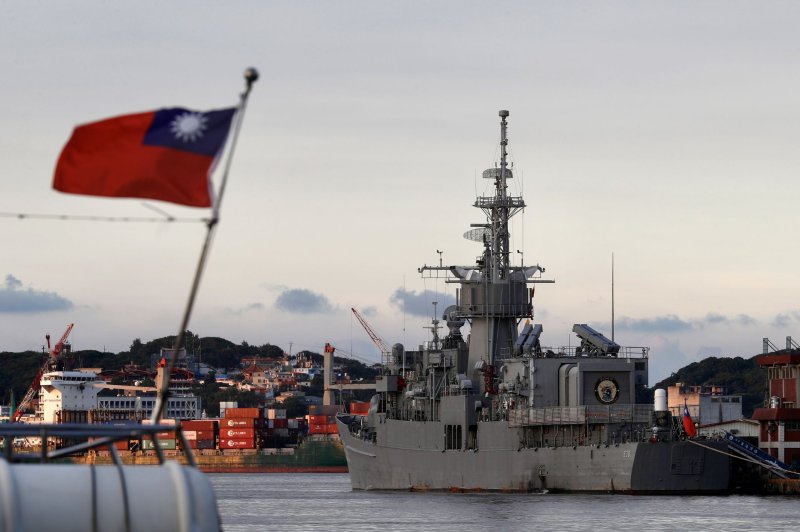1 of 2 | Taiwan warned Friday that growing ties between Russia and China, which claims sovereignty over the democratic island, is a threat to peace and democracy. File Photo by Ritchie B. Tongo/EPA-EFE
Sept. 16 (UPI) -- Taiwan on Friday called the growing ties between Russia and China a threat to global peace and said the international community should join together to "prevent the expansion of authoritarianism."
Russian President Vladimir Putin and Chinese leader Xi Jinping met Thursday at a regional security summit in Uzbekistan, their first face-to-face encounter since just before Russia's invasion of Ukraine in February.
The two leaders pledged to "inject stability into a turbulent world," while Putin praised Xi for "the balanced position" Beijing has taken toward the Ukraine crisis.
The Russian president also expressed a commitment to the one-China principle, through which Beijing claims sovereignty over Taiwan, and condemned the "provocations" of the United States in support of the self-governing island.
In a statement, Taiwan's Ministry of Foreign Affairs lodged "a solemn protest against Putin's remarks that confound right and wrong" and warned of a mounting threat to the world order by the two authoritarian regimes.
"[Putin] claims those who maintain peace and the status quo are provocative, which shows the harm caused by the combination of authoritarian power between China and Russia to international peace, stability, democracy and freedom," the statement said.
China has not condemned the Ukraine invasion and has offered a vital economic lifeline to Russia to help offset crushing Western sanctions, with bilateral trade between the two states reaching a record high.
Beijing views Taiwan as a wayward province that it has vowed to retake by force, if necessary. Tensions reached new heights in August when U.S. House Speaker Nancy Pelosi visited Taipei, which a furious China responded to with a massive show of military force, including several days of live-fire combat exercises and missile launches over the democratic island of 23 million.
Washington has strengthened its support for Taipei in the wake of Russia's Ukraine invasion, and on Wednesday the Senate Foreign Relations Committee advanced a security bill that provides $6.5 billion in military assistance and designates Taiwan as a "major non-NATO ally."
Taiwan's foreign ministry on Friday said it welcomed closer ties with the United States and other democratic countries and vowed to "firmly defend the security of the Taiwan Strait, the shared value of democracy and freedom and the rules-based international order."
"Taiwan is at the forefront of defending democracy in the world," the statement said. "[The ministry] calls on the international community to jointly condemn the Chinese Communist regime's threat to Taiwan and prevent the expansion of authoritarianism."















